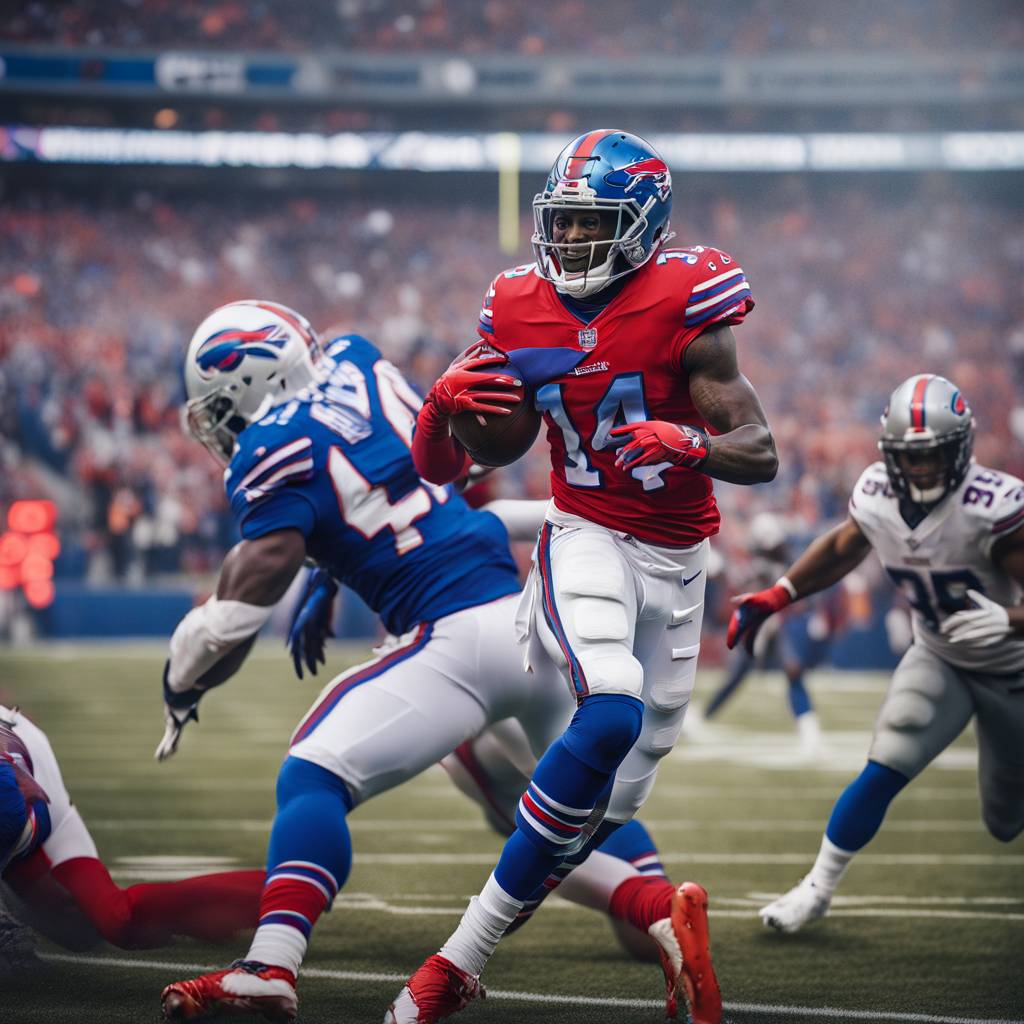The NFL world was stunned by the trade of Buffalo Bills wide receiver Stefon Diggs to the Houston Texans, following a souring relationship between Diggs and the organization. Diggs had expressed frustration with the Bills’ inability to advance in the postseason and reach the Super Bowl, despite the talent on the team’s roster. The Bills are now seen as entering a soft rebuild phase, aiming to return to the playoffs in the near future. Despite losing key players like Gabe Davis and Diggs in the offseason, the Bills still have the talent to potentially win the AFC East.
While plenty of teams were interested in acquiring Diggs, the Bills strategically limited the potential trade partners, banning the Kansas City Chiefs from making a move for the star wide receiver. The Chiefs, coming off their third Super Bowl victory in five seasons, were looking to bolster their wide receiver corps to support quarterback Patrick Mahomes. The addition of Diggs could have potentially enhanced the Chiefs’ chances for a three-peat Super Bowl victory, making them an even stronger contender. The Bills’ decision to block the Chiefs from trading for Diggs was seen as a smart move that benefited not only the Bills but also other teams in the AFC.
The Bills’ decision to allow the Texans to trade for Diggs raised speculation about their strategic motives. By pairing Diggs with rookie quarterback C.J. Stroud, the Bills’ front office may have indirectly hindered the Chiefs’ chances of winning another Super Bowl. This move could be seen as a calculated effort by the Bills to weaken their competition while also potentially setting themselves up for future success. The Bills’ strategic maneuvering in the trade market suggests a willingness to make bold moves in order to improve their own position while hindering rival teams.
The Chiefs’ pursuit of Diggs as a potential addition to their roster highlighted their commitment to strengthening their team and maintaining their dynasty status in the NFL. With quarterback Patrick Mahomes leading the team, the Chiefs were looking to address deficiencies in their wide receiver group to enhance their offensive capabilities. While the addition of Marquise “Hollywood” Brown was a solid move for the Chiefs, the opportunity to acquire a player of Diggs’ caliber may have presented a significant advantage in their quest for another Super Bowl victory. The Bills’ decision to block the Chiefs from trading for Diggs underscored the competitive nature of the NFL and the strategic calculations made by teams in pursuit of success.
In conclusion, the trade of Stefon Diggs to the Houston Texans by the Buffalo Bills showcased the complex dynamics at play in the NFL trade market. The Bills’ decision to strategically limit potential trade partners and prevent the Chiefs from acquiring Diggs highlighted the competitive nature of the league and the strategic calculations made by teams. The move also raised questions about the Bills’ long-term goals and their willingness to make bold moves to improve their position in the league. As the NFL landscape continues to evolve, the trade of Diggs serves as a reminder of the competitiveness and strategic maneuvering that defines the league.








